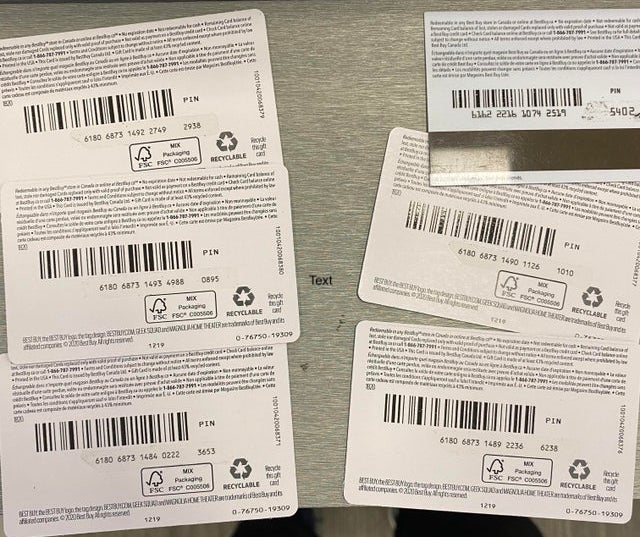Over the weekend there was a 4x fuel points promotion for Kroger stores which usually causes BestBuy volume to crank up to an 11, but that didn’t happen this time. Sure, there was some BestBuy buying capacity to go around in select circles, but only at roughly 15% capacity of what would normally be available. What happened? Two things:
First, January is always really slow for gift card reselling and this year it’s even slower than normal, likely due to supply chain issues that mean retailers aren’t holding major sales.
Second, BestBuy stopped giving refunds on lost and destroyed packages to accounts of suspected resellers starting sometime around Christmas. With approximately three percent of packages lost, this means that less-crafty BestBuy resellers need to factor another loss into their cost of goods sold.
With somewhere around a third to a half of those resellers not yet figuring out how to work around the reseller flag, BestBuy rates were reduced by about 1.5%. Yay efficient market, but boo for gift card resellers.
Of course I have no idea how the BestBuy gift card market will actually look in the future, but based on watching BestBuy’s growing disdain toward resellers, I think the outlook for 2022 BestBuy gift card resale rates isn’t as rosy as it looked in 2021. Go ahead BestBuy, prove me wrong. I dare you.

One thought on “What Happened to the BestBuy Gift Card Market”
Comments are closed.